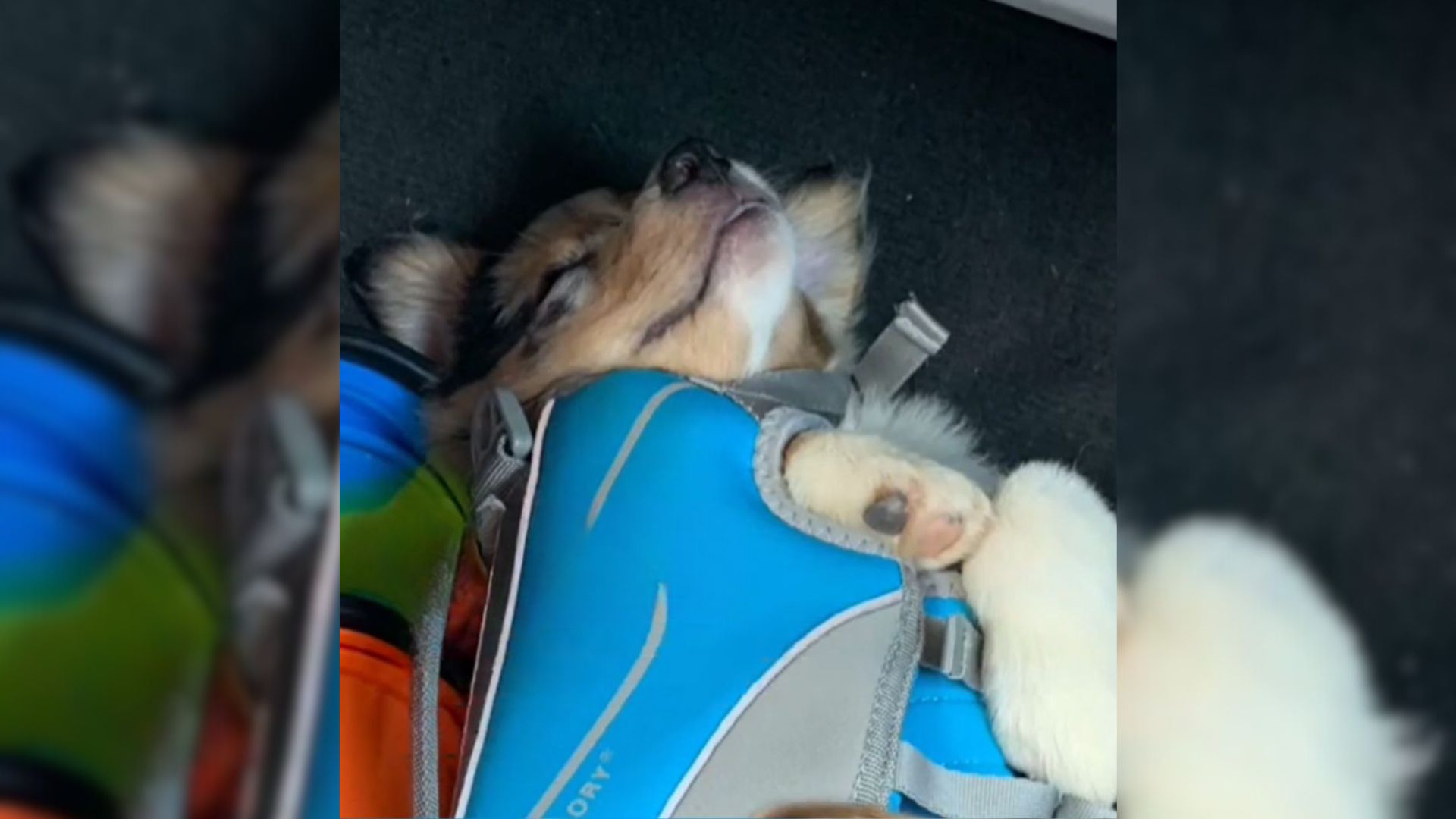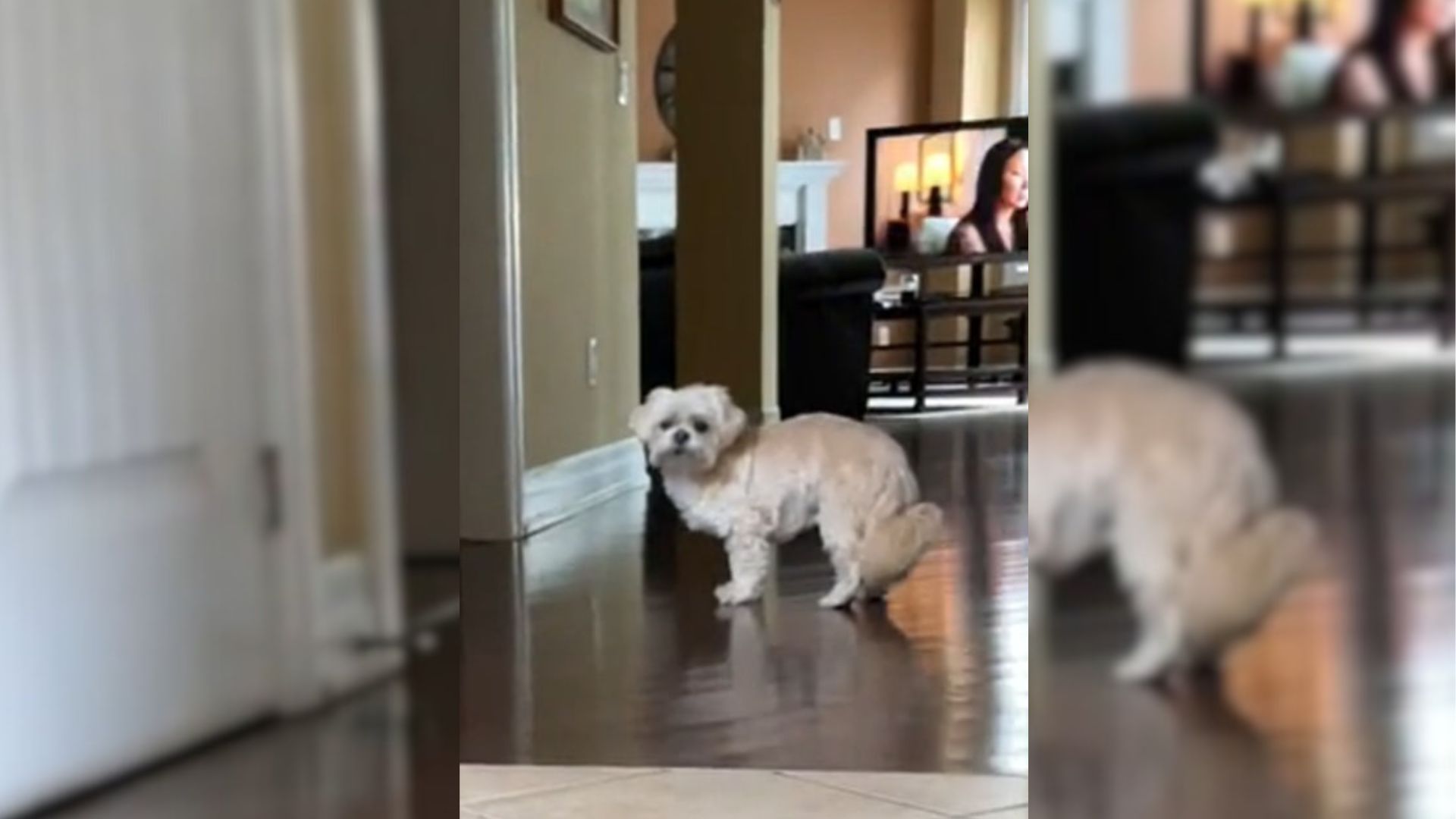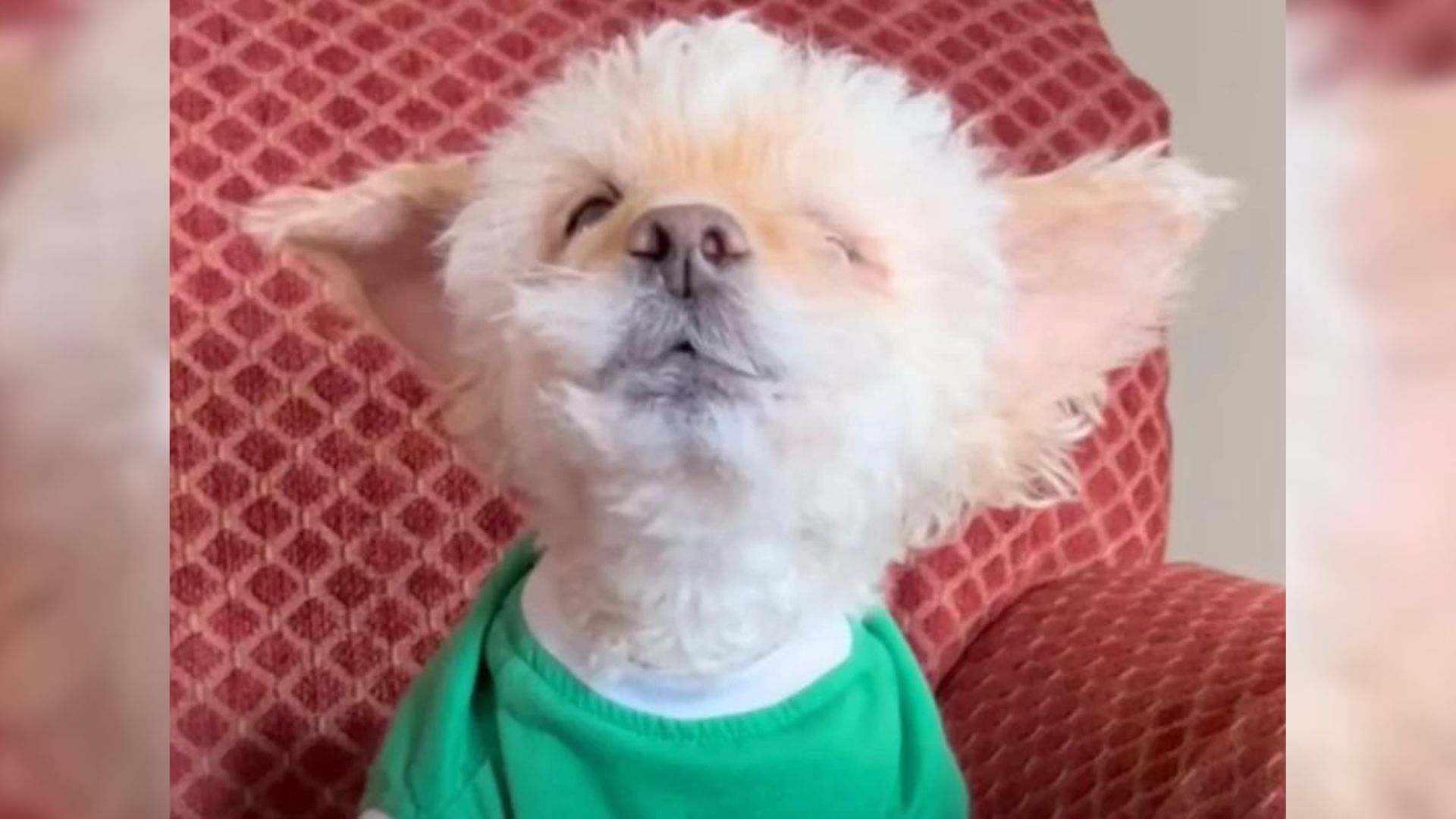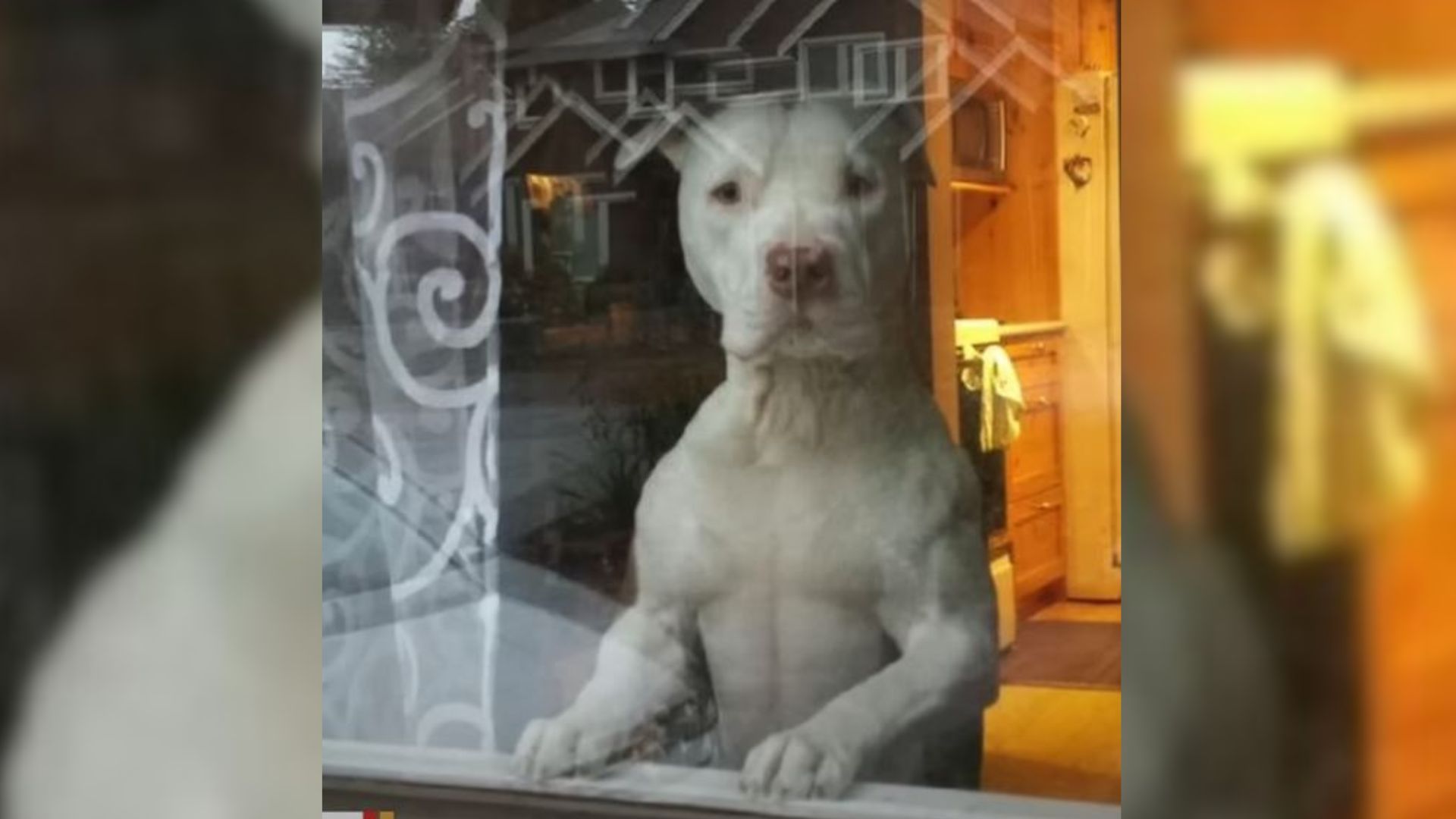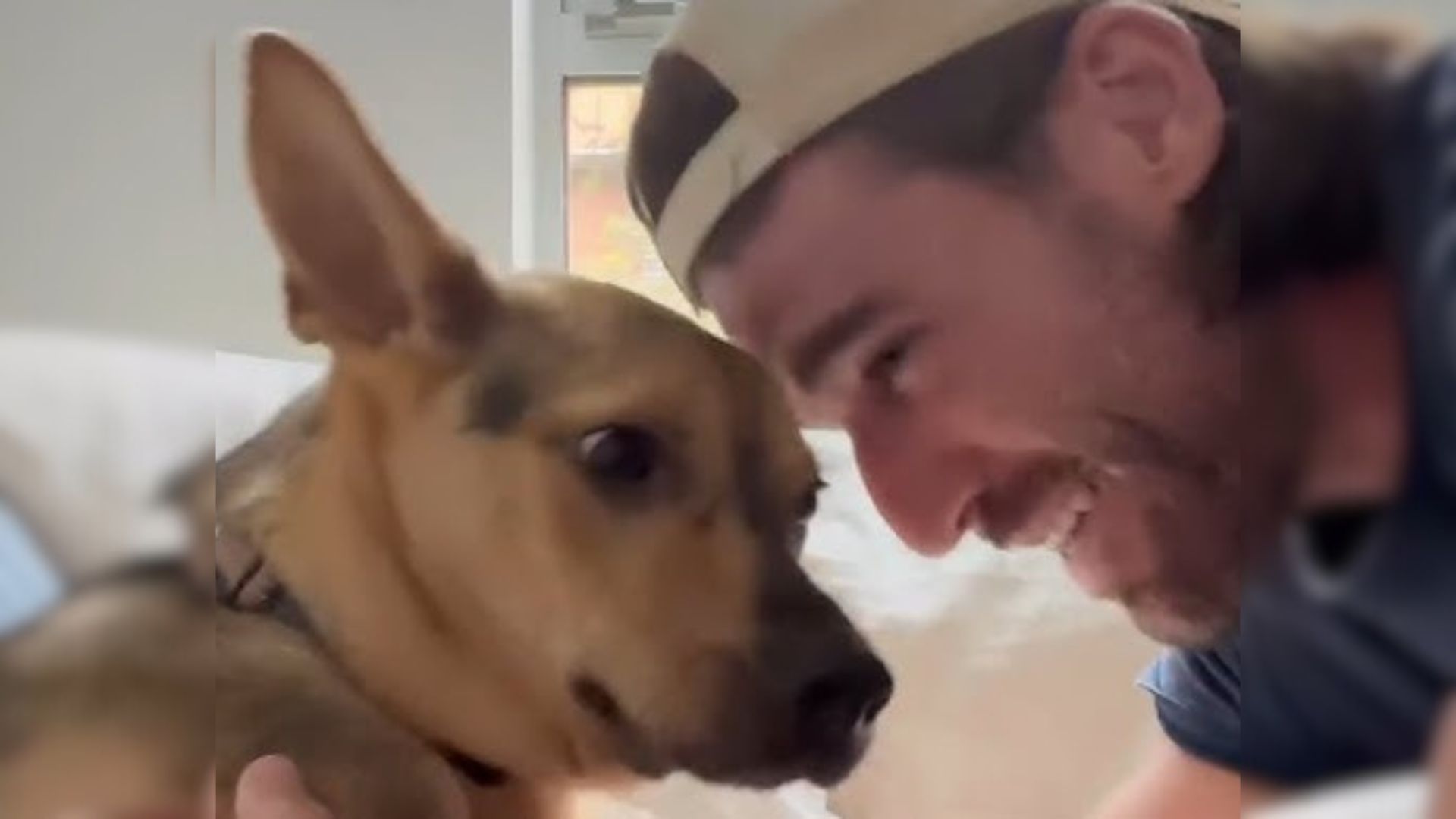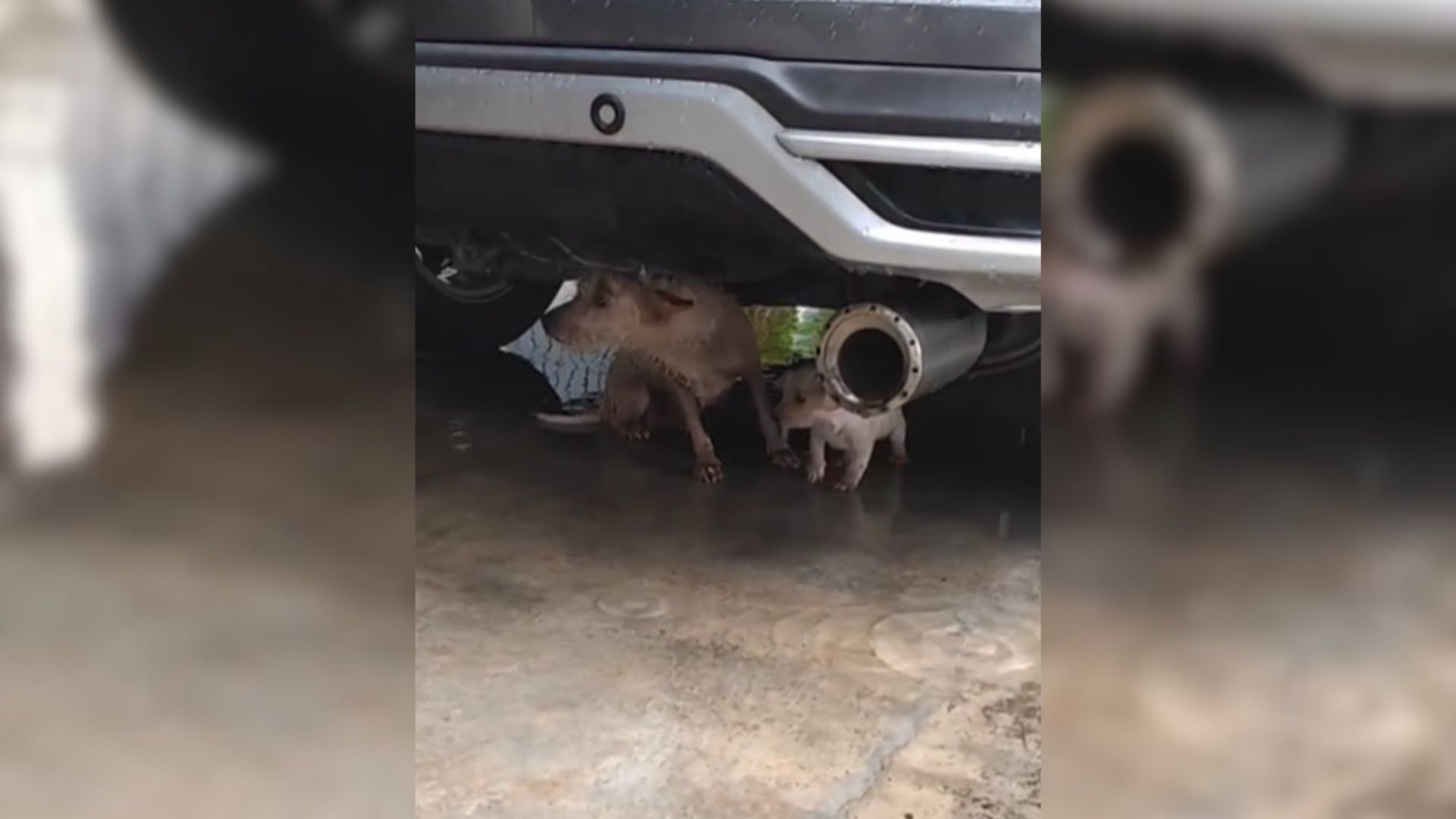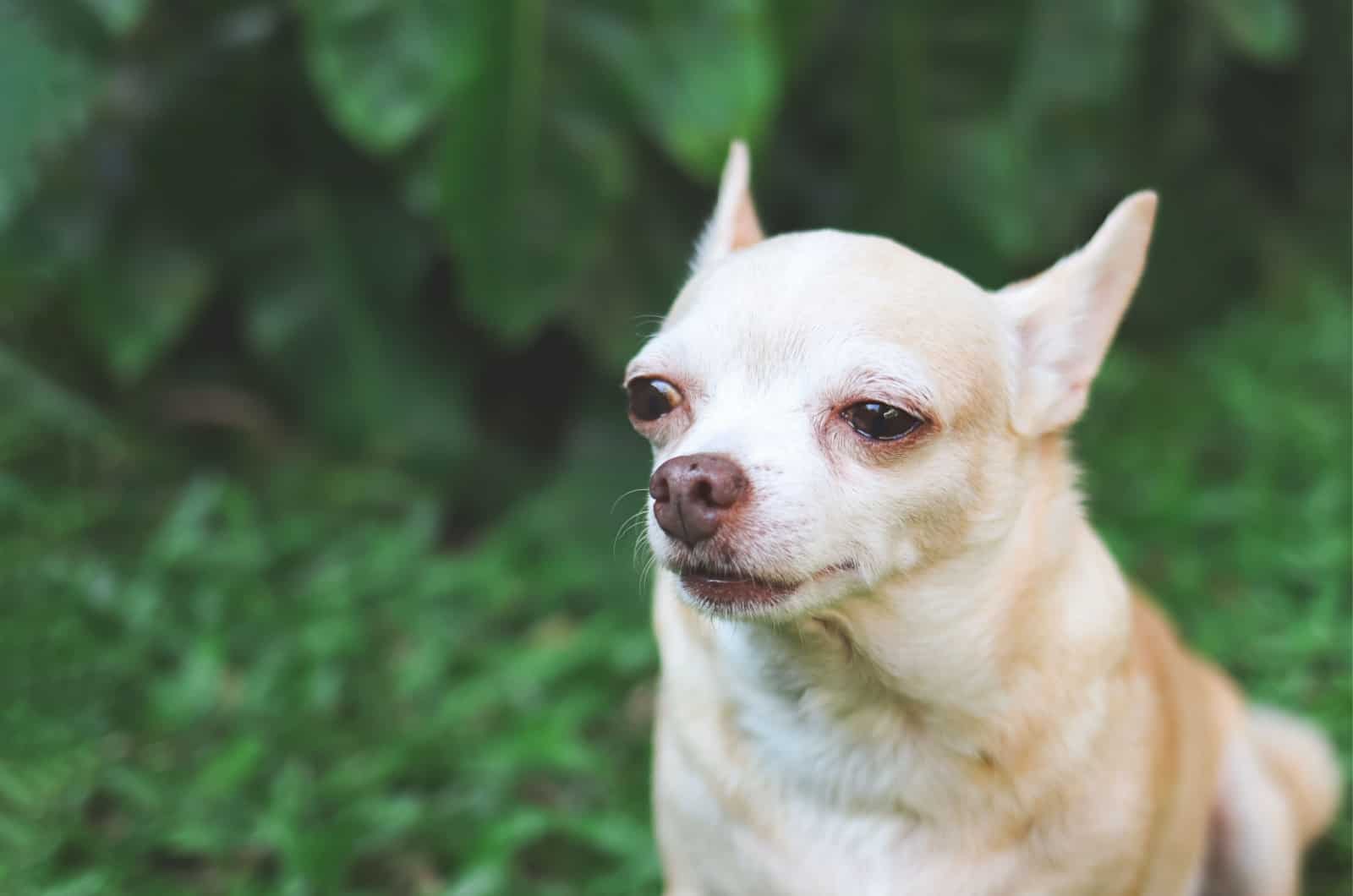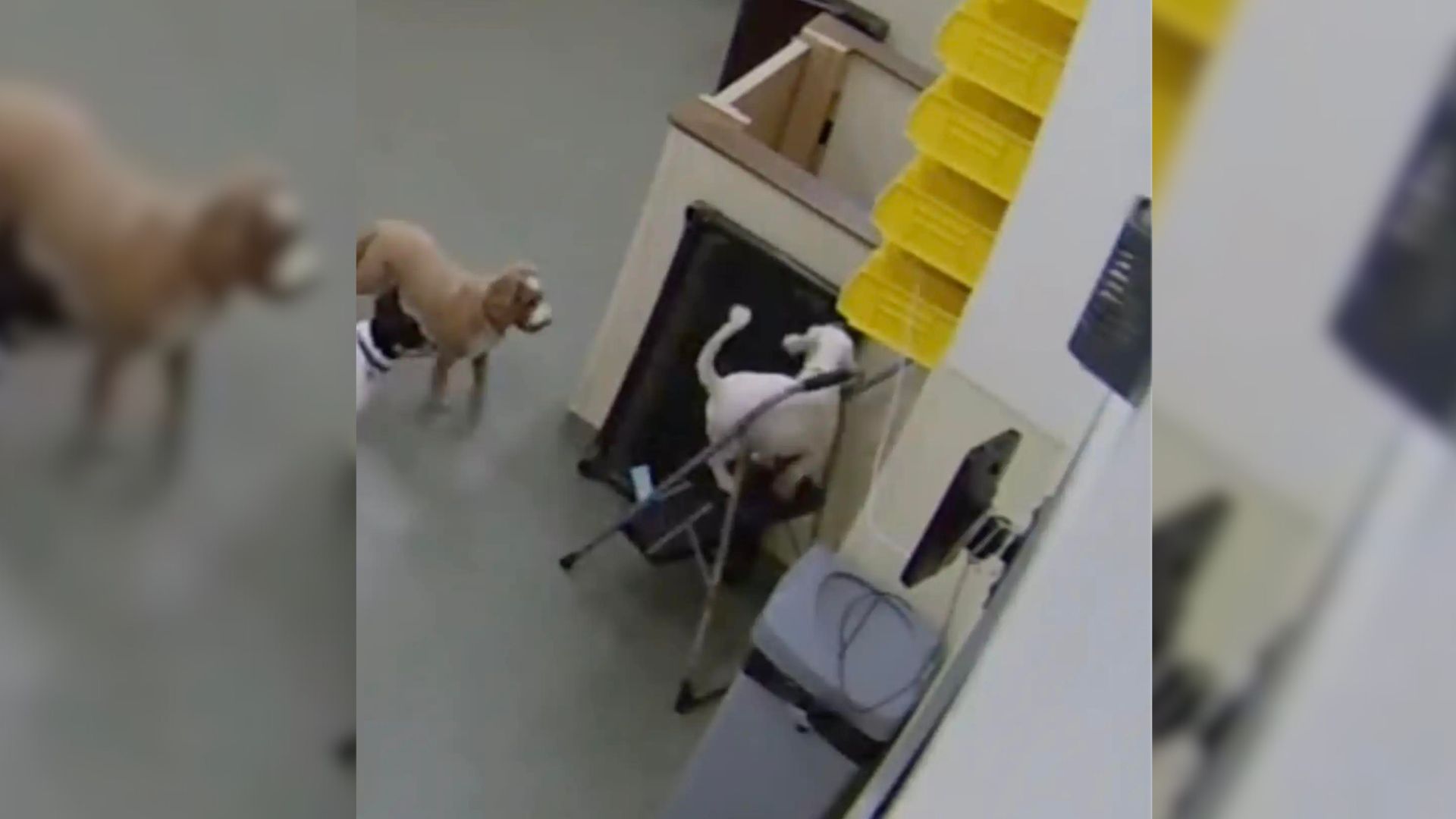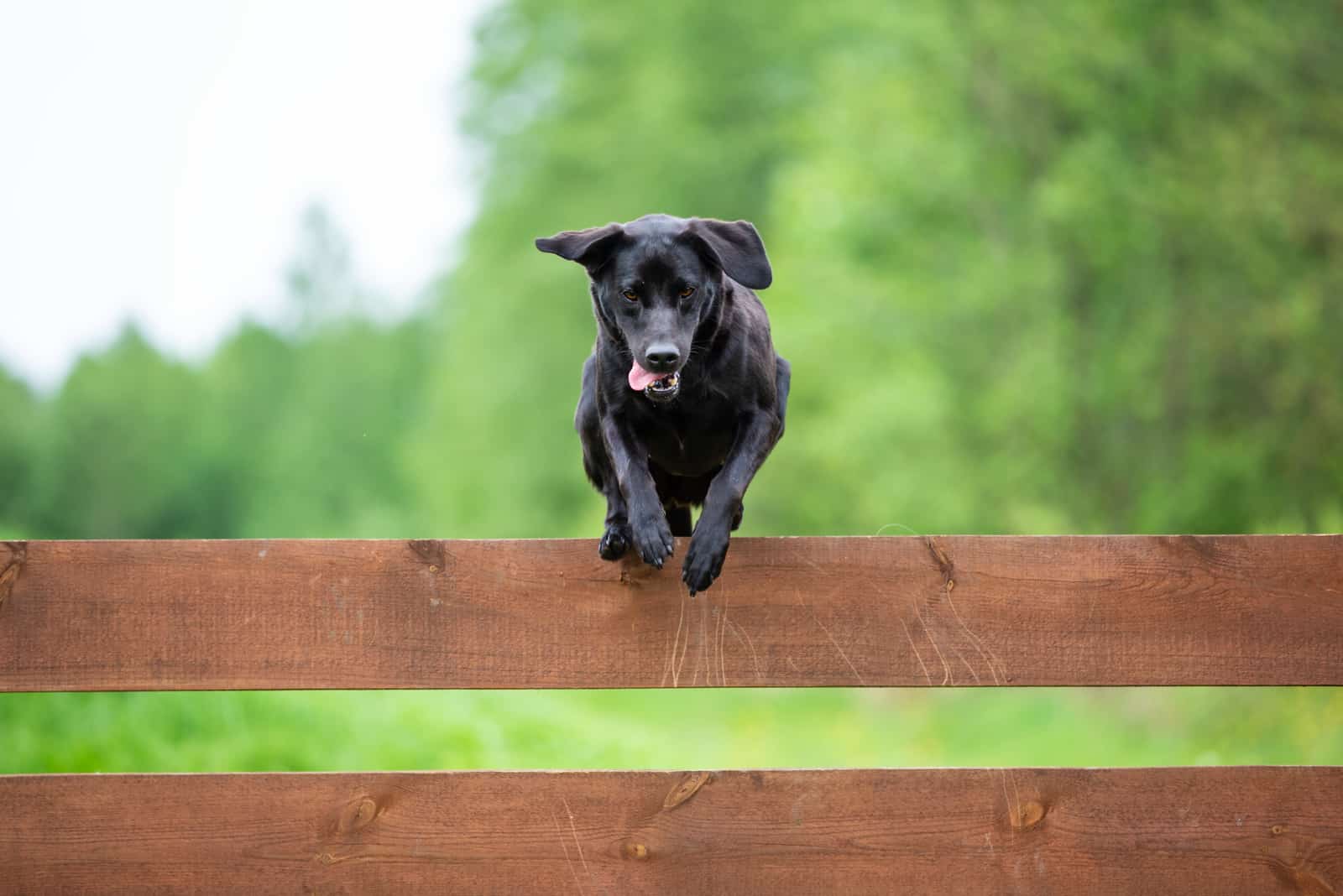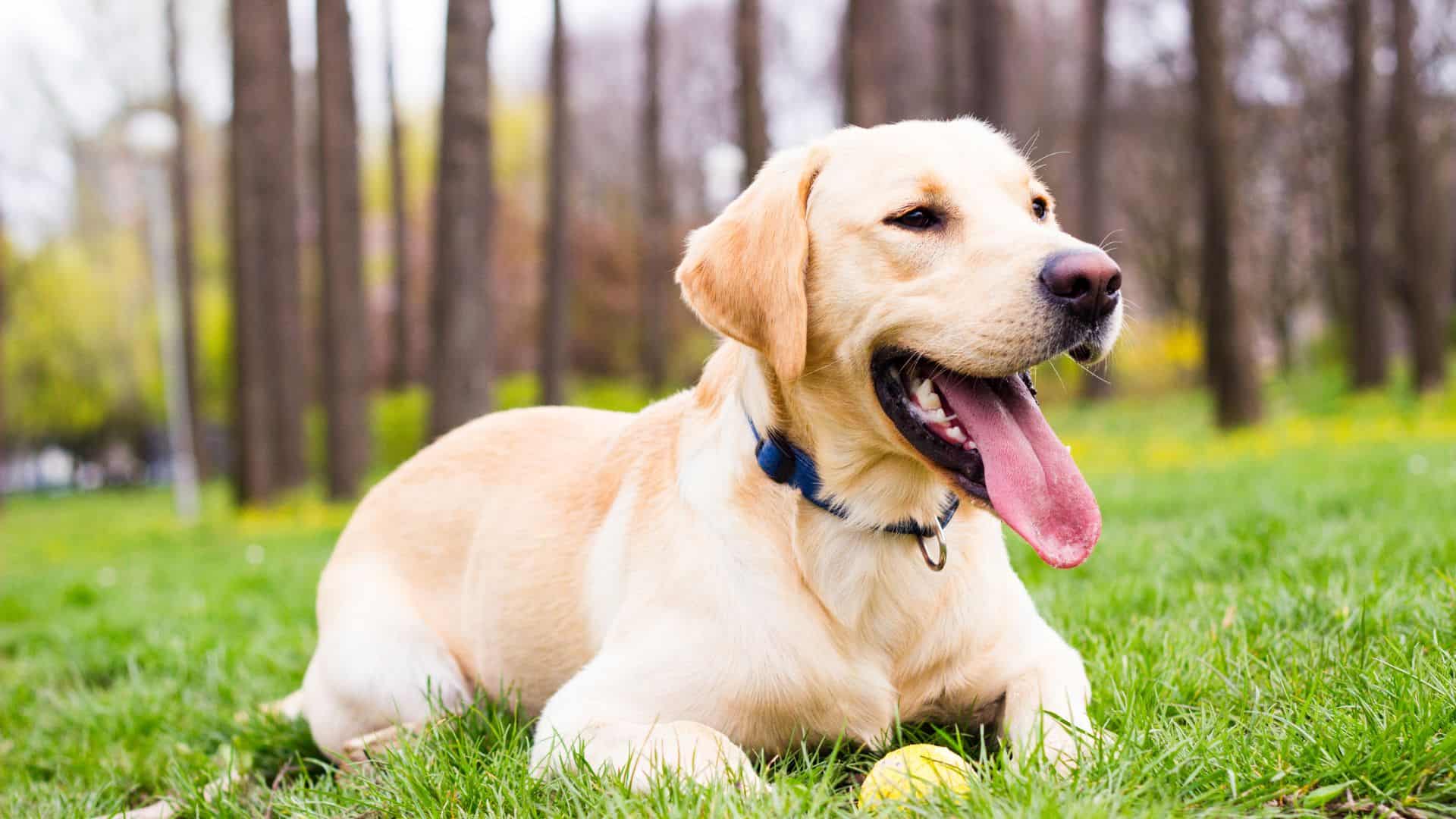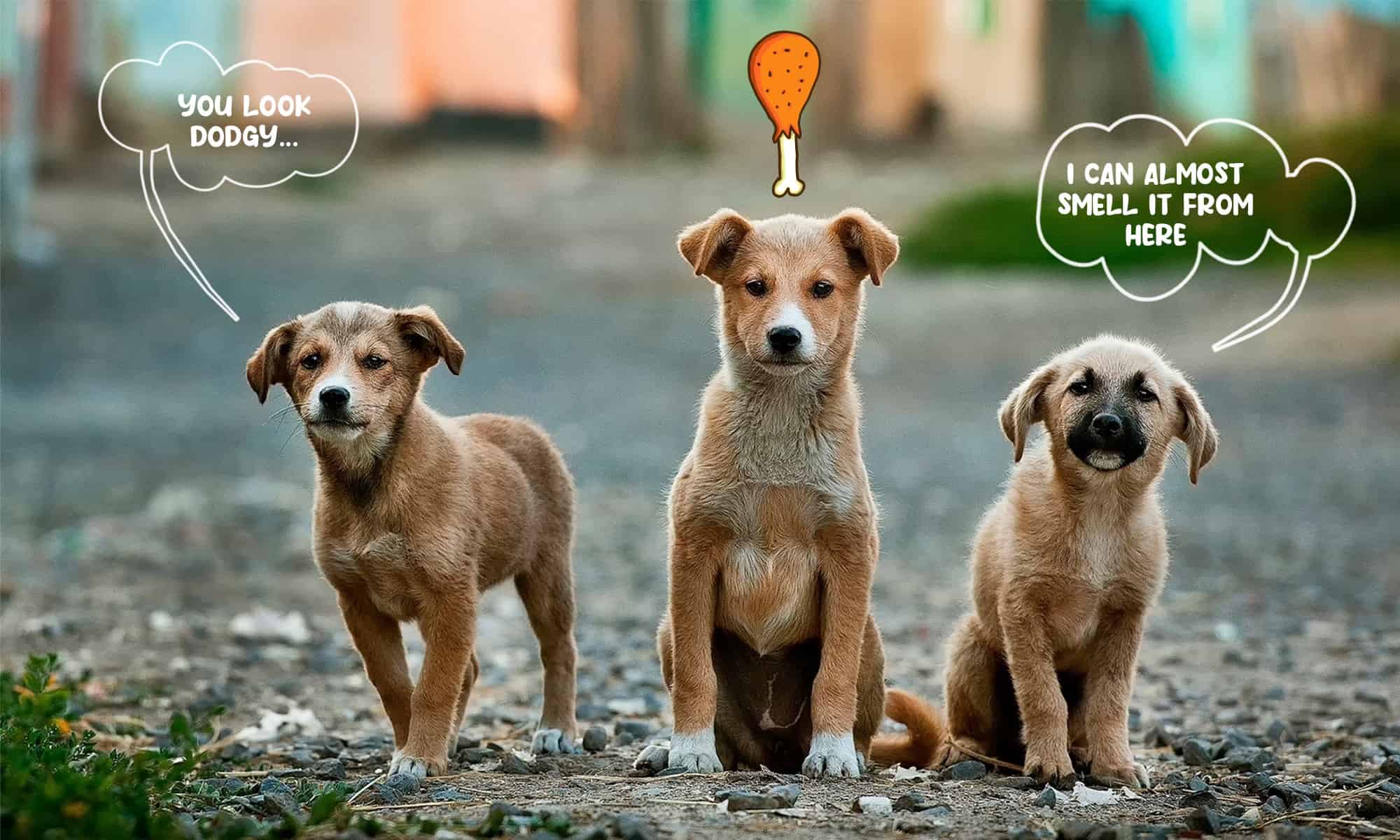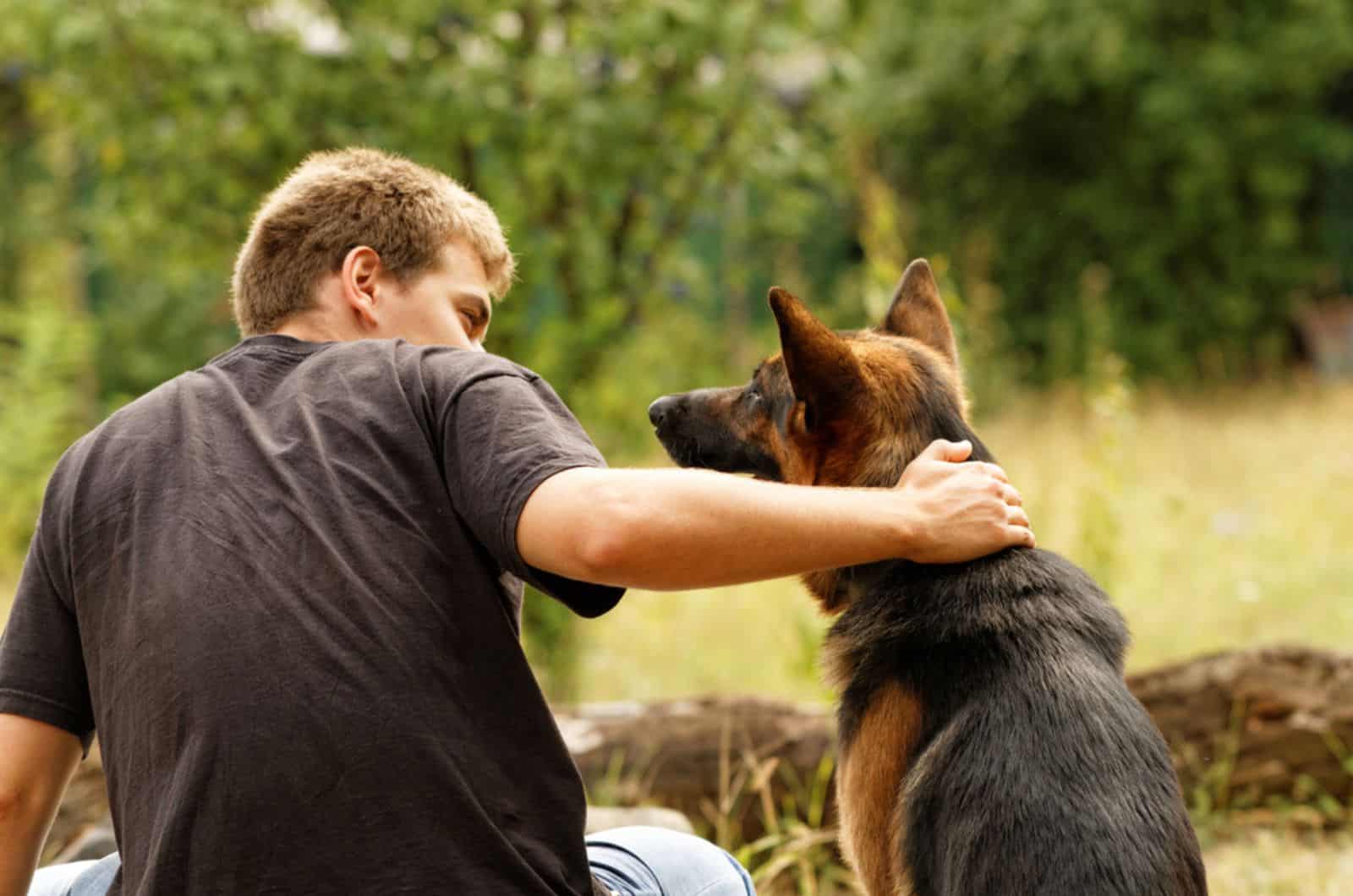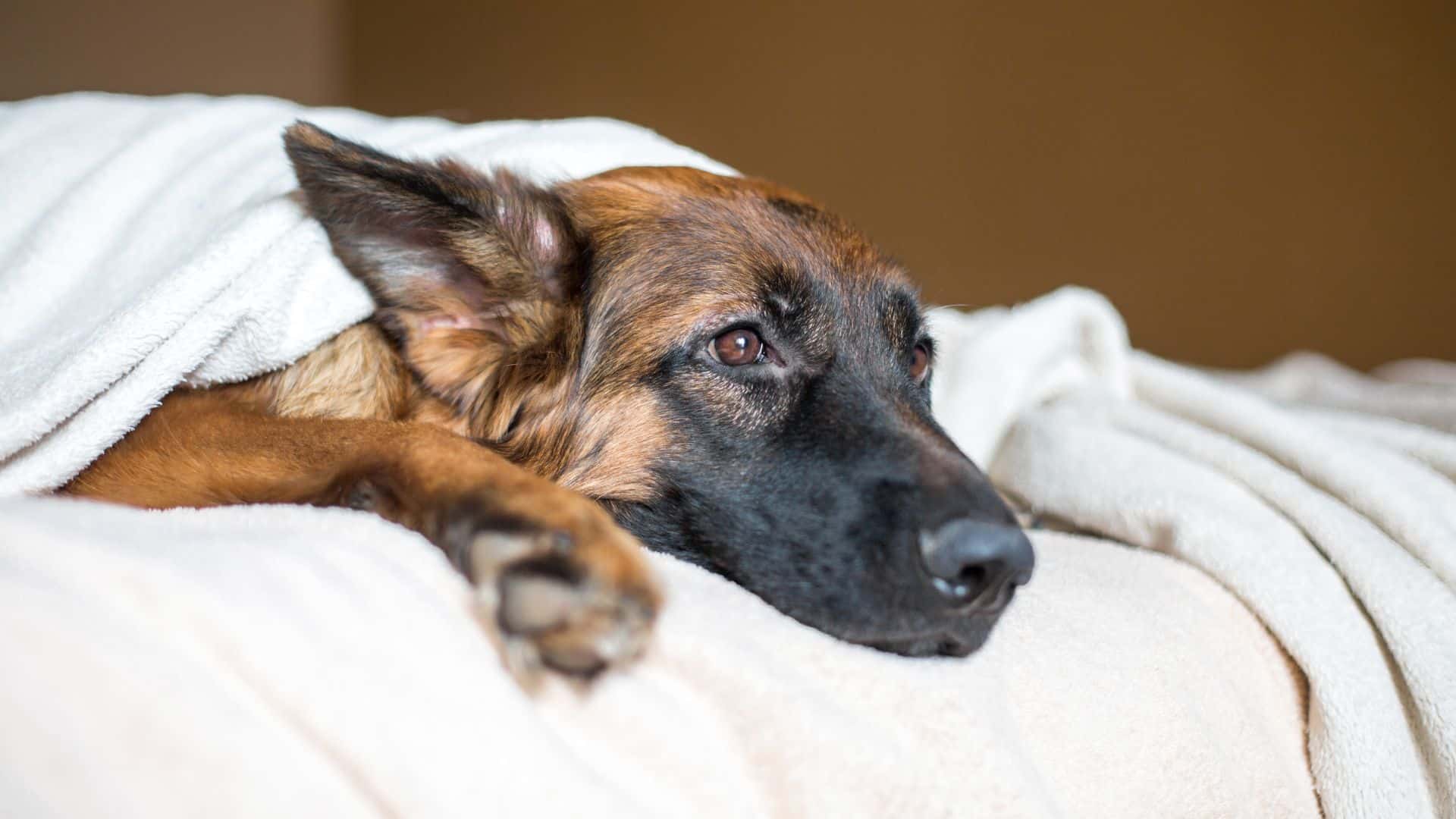Dogs are among the cutest family pets one could possibly own. They seem to be able to liven up anyone’s home! With dogs, all mundane activities will have an additional layer of fun, even if they are seemingly as boring as sleeping.
At the same time, dogs are prone to doing things that would leave us laughing all the time, while also making us a bit surprised or even worried.
Even if you’re a new dog owner, chances are you’ve already noticed that dogs can have a few funny sleeping habits. This includes loving to sleep on your head.
If you wake up at night with your dog’s butt blocking your view, you might no longer be as excited about sharing the bed with your four-legged friend. In fact, you have likely wondered to yourself, Why does my dog sleep on my head?
Well, the quick answer to this question is that dogs love to sleep next to us. The closer they are to us, the safer they feel. This position also helps them protect us, which is certainly the case if you have a dog breed known for making great guard dogs, such as the German Shepherd or even the Corgi.
However, things aren’t that simple. There are plenty of other reasons why your beloved pet has such weird sleeping positions, such as on our heads.
So, if you want to know the answer to the burning question, Why does my dog sleep on my head?, this article is for you.
Why Does My Dog Sleep On My Head
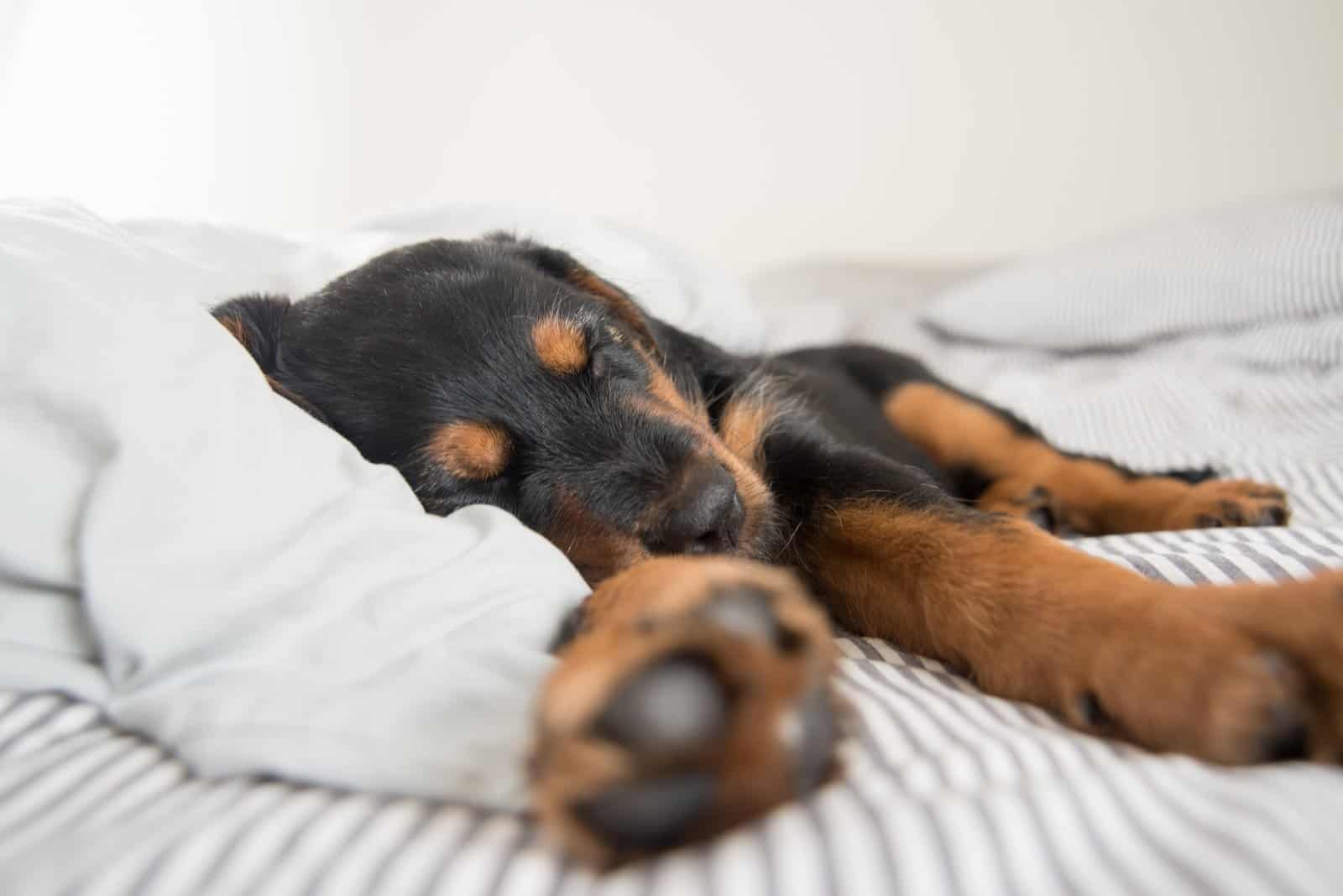
Why does my dog sleep on my head? Many dog owners have asked themselves this exact question, but not all know the answers.
As mentioned before, there are many reasons why a dog would want to sleep on your head. Here are some of the most common ones:
This Helps Them Feel Secure
Dogs are pack animals that love to be close to their pack members. As their owner, you are the most important pack member for them – the pack leader, the alpha dog.
In the wild, all members of the pack need to stick together. This will provide them with security and comfort. When they are separated, they are more prone to being vulnerable in the case of an attack.
A dog that sleeps on your head feels perfectly secure knowing he is close to the member of its own pack – you. It doesn’t get closer than sleeping on someone’s head!
Many times, we sleep under the blankets, and the only part that isn’t covered is our head. This is another reason why our head might be our dog’s favorite spot. As there isn’t a blanket covering it, your dog can feel your warmth by lying directly on your head.
Overprotective Behaviors
This cause is closely related to the previous one.
The dog sees you as a pack member, and pack members have to stay together so they are safe from an attack. By lying on your head, the most vulnerable part of your body, your dog is actually protecting you from danger.
Some dog breeds are more prone to overprotective behavior than others. This is because they were trained for generations to be guard dogs and watchdogs.
Dogs tend to be overprotective when there are other pets or people around. For example, if you’re sharing a bed with your new partner, chances are your dog will want to sleep on your bed to keep you safe.
The same can happen if you’ve recently introduced a new family member into the household, whether that is a baby or a new pet. This can send your dog into an overprotective mode, and sleeping on your head is the best protection he can give you.
Separation Anxiety
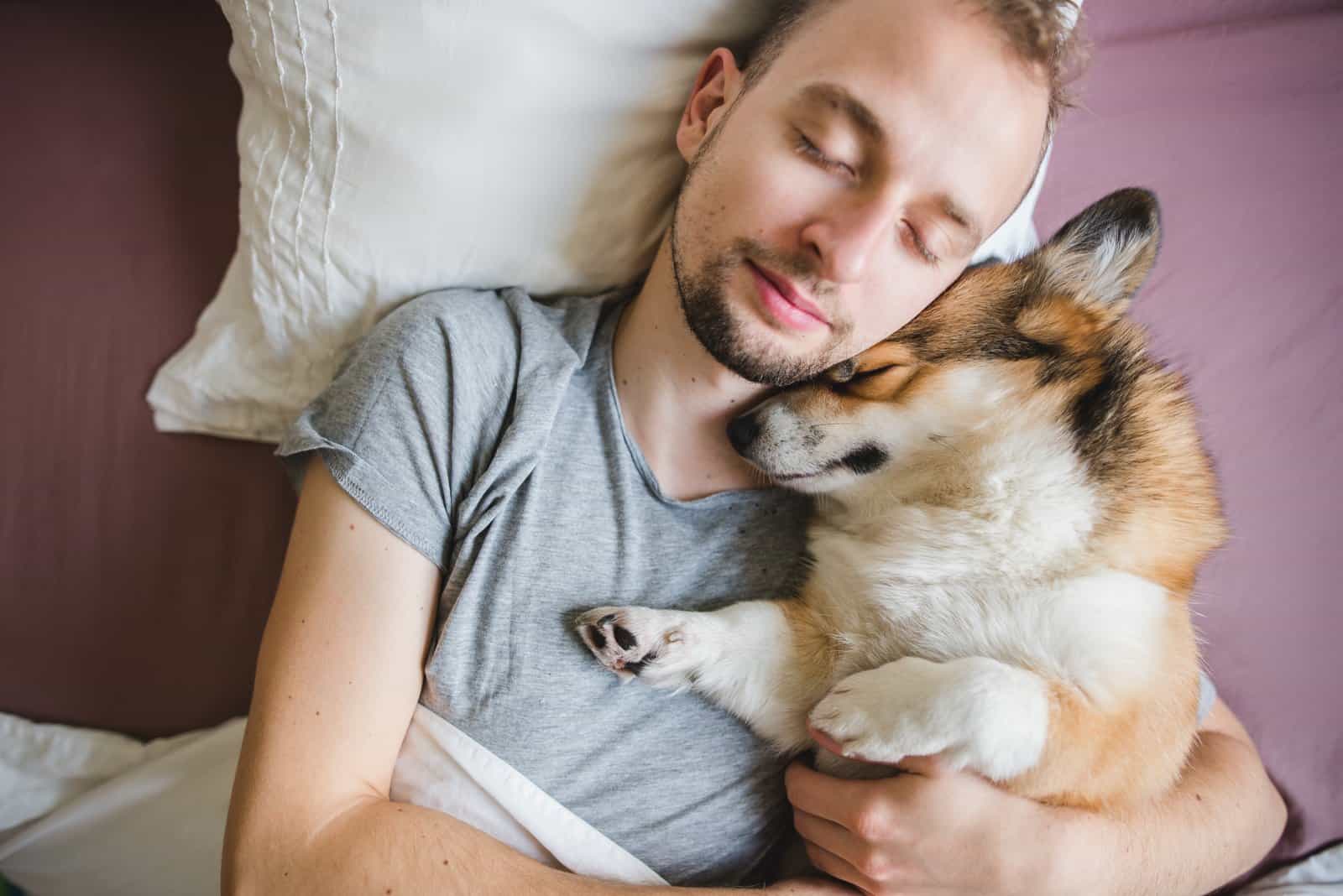
Dogs and humans are alike in many things. One of them is that both are prone to certain mental disorders, such as stress and anxiety. One of the most common such issues in dogs is separation anxiety.
No dog will be happy when you go away to work. However, for a dog with separation anxiety, this might look like the end of the world. These feelings will only worsen if you haven’t provided your dog with proper physical and mental stimulation for the time you are away.
A dog that is bored and lonely might end up feeling detached. All of this, combined with the possibility of former traumas, can result in separation anxiety.
Some signs of separation anxiety include:
• Self-isolating when their favorite human isn’t nearby.
• Irritable behavior such as growling, excessive barking, howling, or even chewing on things.
• Poor eating habits.
• Incontinence.
• Gastrointestinal complications, including constipation, diarrhea, and upset stomach.
If you’ve ever wondered Why does my dog sleep on my head only in the morning?, the chances are that he’s anticipating that you’re about to leave. By sleeping on your head, they’re not only staying as close to you as possible, but they’re also trying to keep you from leaving.
Separation anxiety is a serious issue that should be resolved as quickly as possible. Unfortunately, most of the time, it requires help from a professional dog trainer or an animal behaviorist.
Bonding
Bonding is a healthy alternative for separation anxiety. A dog doesn’t have to be anxious or panic every time you leave in order to want to stay as close to you as possible, even if this means sleeping on your head.
Sharing a bed is a great way for some dogs to get close to their owners. This can strengthen the existing bond, making you and your dog as attached to one another as possible.
Attention Seeking Behaviors
Dogs love attention, and they’ll do all they can to get it, especially when they feel as if they’re not getting it enough – and keep in mind that for some dogs, there is never enough attention.
Attention-seeking behaviors can sometimes be quite annoying, especially if a dog is barking non-stop or if he’s trying to get your attention by being destructive.
They Like Your Pillow
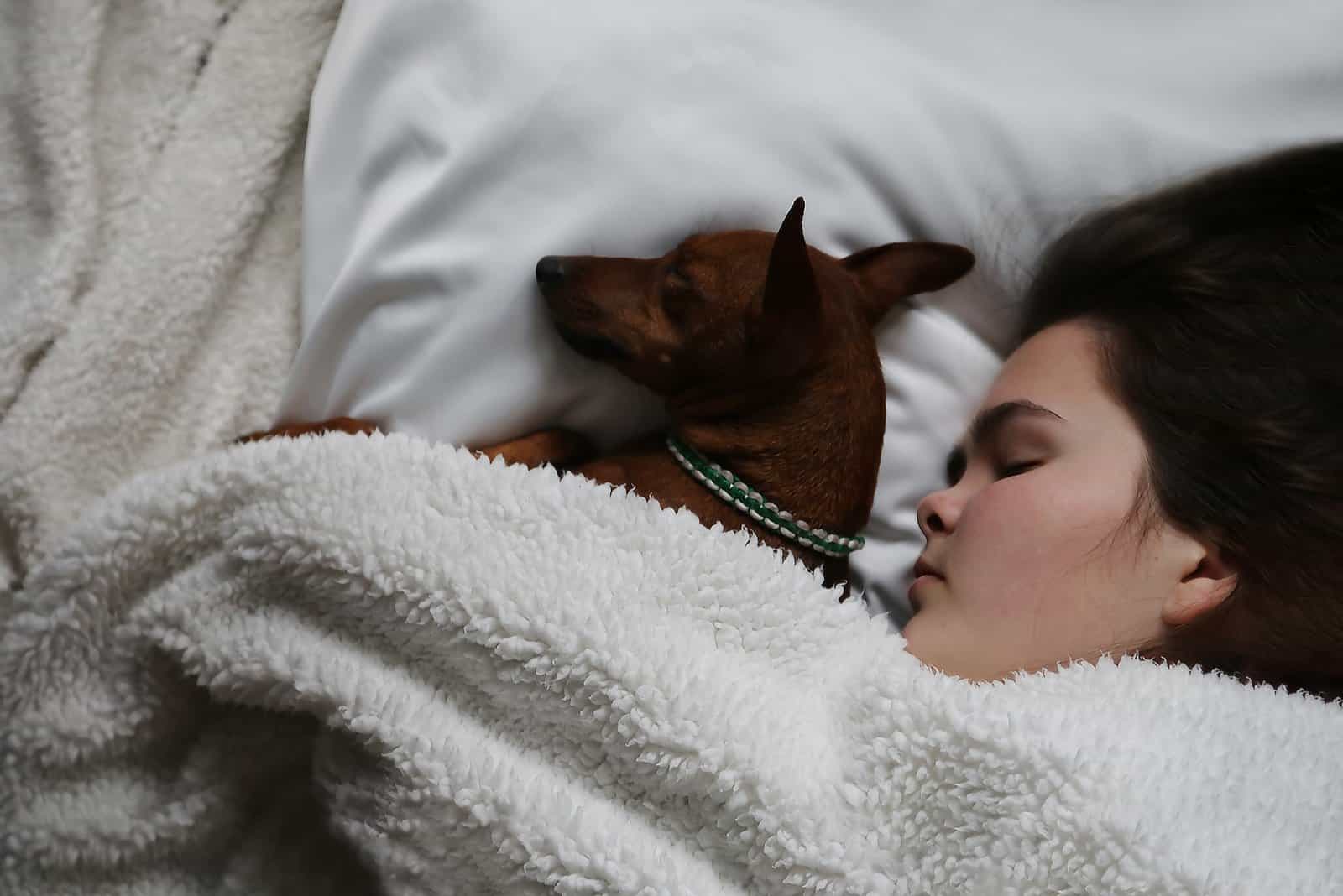
Sometimes, a dog doesn’t sleep on your head because he likes you that much. He sleeps on your head because he loves your pillow.
Pillows are comfortable items we all love. There is nothing better than a pillow perfectly suited for us. Unfortunately, our canine friends think the same thing.
If you’re letting your dog share a bed with you, but you’re not allowing him to lie on a pillow, he’ll want to lie on yours. This is done both out of curiosity and the love for comfortable beds – and your pillow is usually the most attractive one.
Not just that, but dogs love to imitate the habits of their owners. Humans sleep on pillows, so naturally, your dog will want to do the same, especially if they already know how comfortable a pillow is!
They Want To Get Warm
Dogs love to sleep in warm, comfortable places. This is especially the case during cold winter months when your furry friend is likely feeling the chills.
Even though a dog’s body temperature is higher than a human’s, our head is still much hotter than the environment around us. This can make dogs want to lie on top of it.
Dogs that are feeling cold and hating it might also try burrowing under your blanket for additional warmth. In fact, some canines adore sleeping under the covers as this gives them the best comfort possible.
A New Puppy
Did you just get your dog and he is still very young? New puppies are known for wanting to sleep as close as possible to us – especially on our heads.
Before we adopt a puppy, the pup shares most of his time with his mother and littermates. When you separate him from them, he might feel lonely, and he’ll want to cuddle with you all night long.
While puppies are adorable, we wouldn’t suggest you let them share a bed with you, let alone sleep on your head. Puppies cannot control their bladder and bowel movements as efficiently as adult dogs can. As they are very prone to accidents, allowing them to sleep close to you isn’t a good idea.
Marking
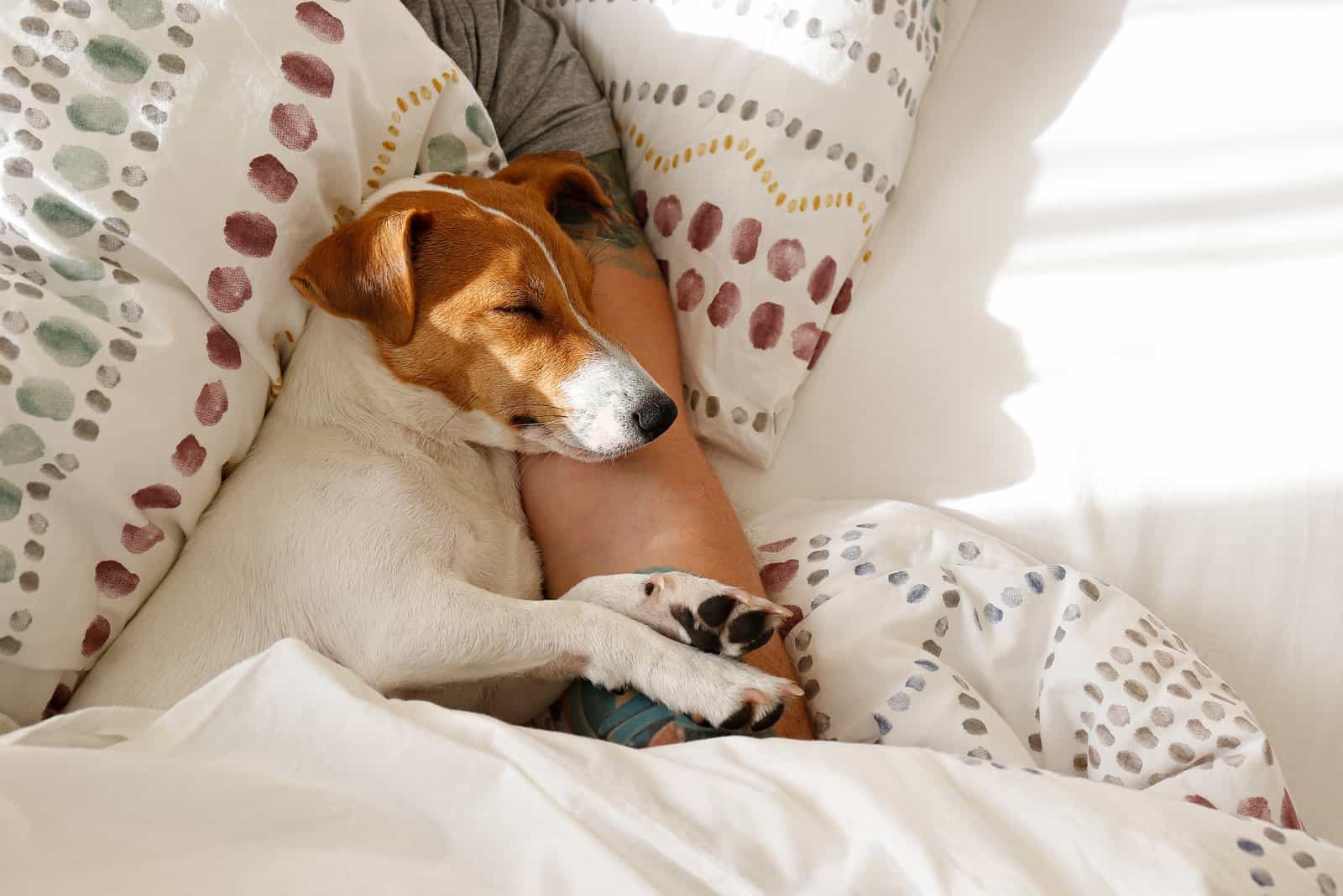
Dogs need a firm owner who will make them think that humans are pack leaders. However, if a dog isn’t properly trained, he will start believing that he is the leader instead of you. By sleeping on your head, he’ll let you know that he’s in charge.
In this case, sleeping on your head is a sign of dominance, and not protection.
The best way to determine whether a dog is sleeping on you for this reason is to observe his behavior around you during the day.
Think about how a dog reacts when he gets close to you. Does he bark happily or show signs of aggression from time to time?
If it’s the latter, chances are you have a dominant dog that is trying to overpower you by sleeping on top of your head.
You’ve Reinforced The Behavior
Most of the time, dogs won’t do anything if they don’t get something out of it. If your dog insists on sleeping on your head, chances are you’ve inadvertently reinforced this behavior.
Dogs seem to live for positive reinforcements, and they’ll behave in such a way as to try to get you to praise them, or even just to look at them and pay them some attention. This includes sleeping on you.
Think about it. Do you lure your dog out of the bed with dog treats? Or, do you pick your dog up and briefly snuggle with him before you take him down? While you think you’re doing the right thing, you’re actually making your dog repeat the behavior, knowing that you’ll pay attention to him.
Keep in mind that negative reinforcements, such as shouting at the dog or hitting him, won’t do anything. In fact, research shows that dogs react so badly to negative reinforcements that the behavior will only worsen.
The best solution for this is to buy your doggie his very own dog bed and teach him to sleep in it.
Why Does My Dog Sleep On My Pillow Above My Head
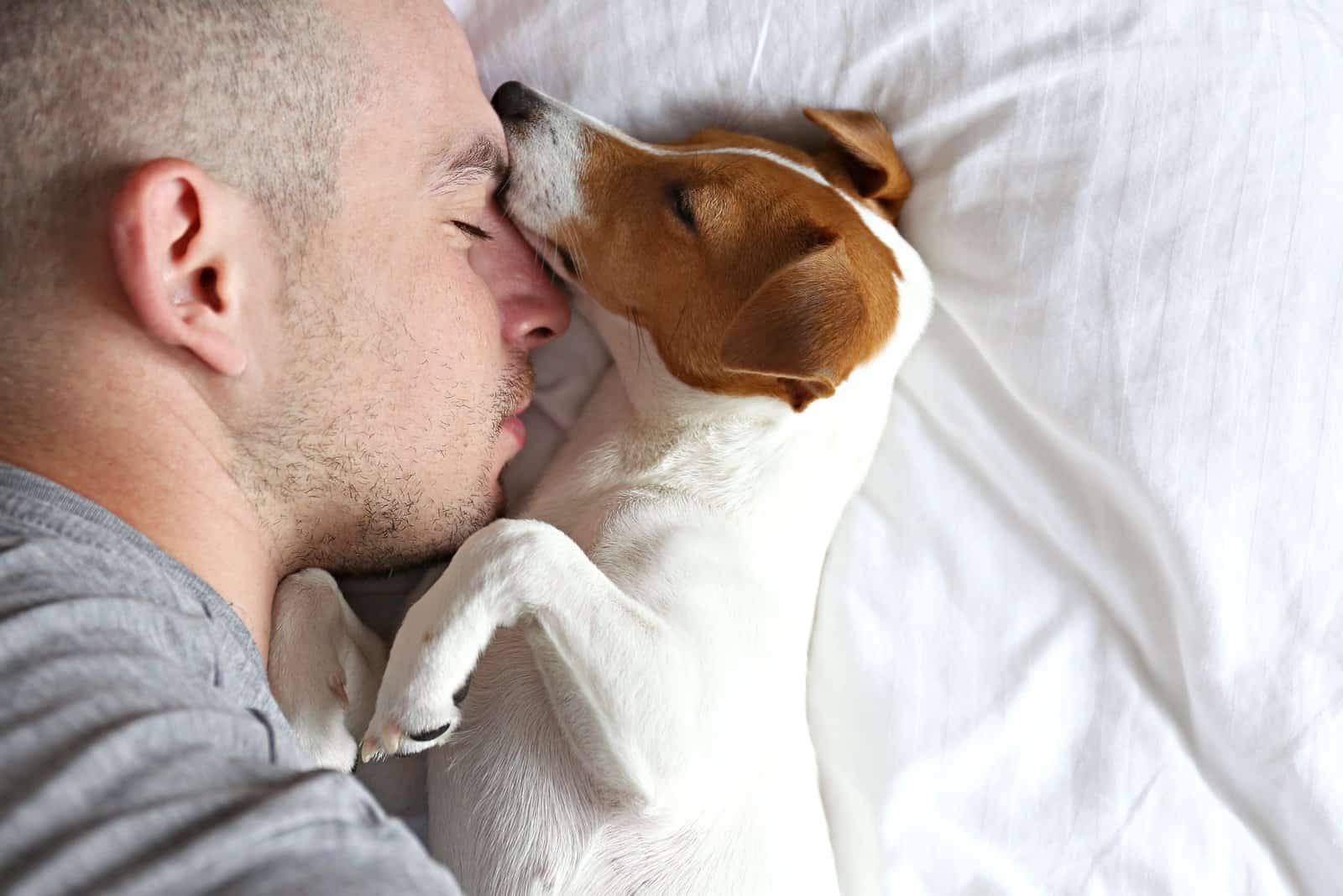
As we’ve already mentioned, chances are your dog loves your pillow! Pillows are comfortable, and most classic dog beds don’t have them. As such, your dog will love using one of them!
Not just that, but by choosing the pillow above your head, your dog can ensure that he is close enough to his favorite human – you.
However, if your dog prefers to sleep in such a position where his head and neck are raised, there is a slim chance that it has breathing issues. Mention this to your vet during the next visit.
Why Does My Dog Lay His Head On My Feet
There are two most common reasons behind this dog behavior.
The first one can be similar to why your dog loves to sleep on your head: Your feet are likely one of the body parts that are mostly kept out of the covers. By laying on them, they’ll feel close to you and feel your body warmth.
At the same time, your dog might love to lay his head on something elevated, and your legs are rather comfortable – especially if you’re not allowing it to climb on your pillow!
Why Does My Dog Lay His Head On My Neck
If a dog lays his head on your neck, this is the biggest sign of affection a dog can provide you with.
Necks are the most sensitive body part in all animal species. This is one of the things humans and dogs aren’t different in. Your canine companion is aware of this, and by laying his head on your neck while you sleep, he is protecting you during the time when you are the most vulnerable.
Small dog breeds might also lay their head on your neck because they are too small to reach your head.
Whatever the reason may be, this is likely one of the most adorable signs of love that dogs show us, and it can be great for bonding.
Why Does My Dog Lay His Head On My Chest
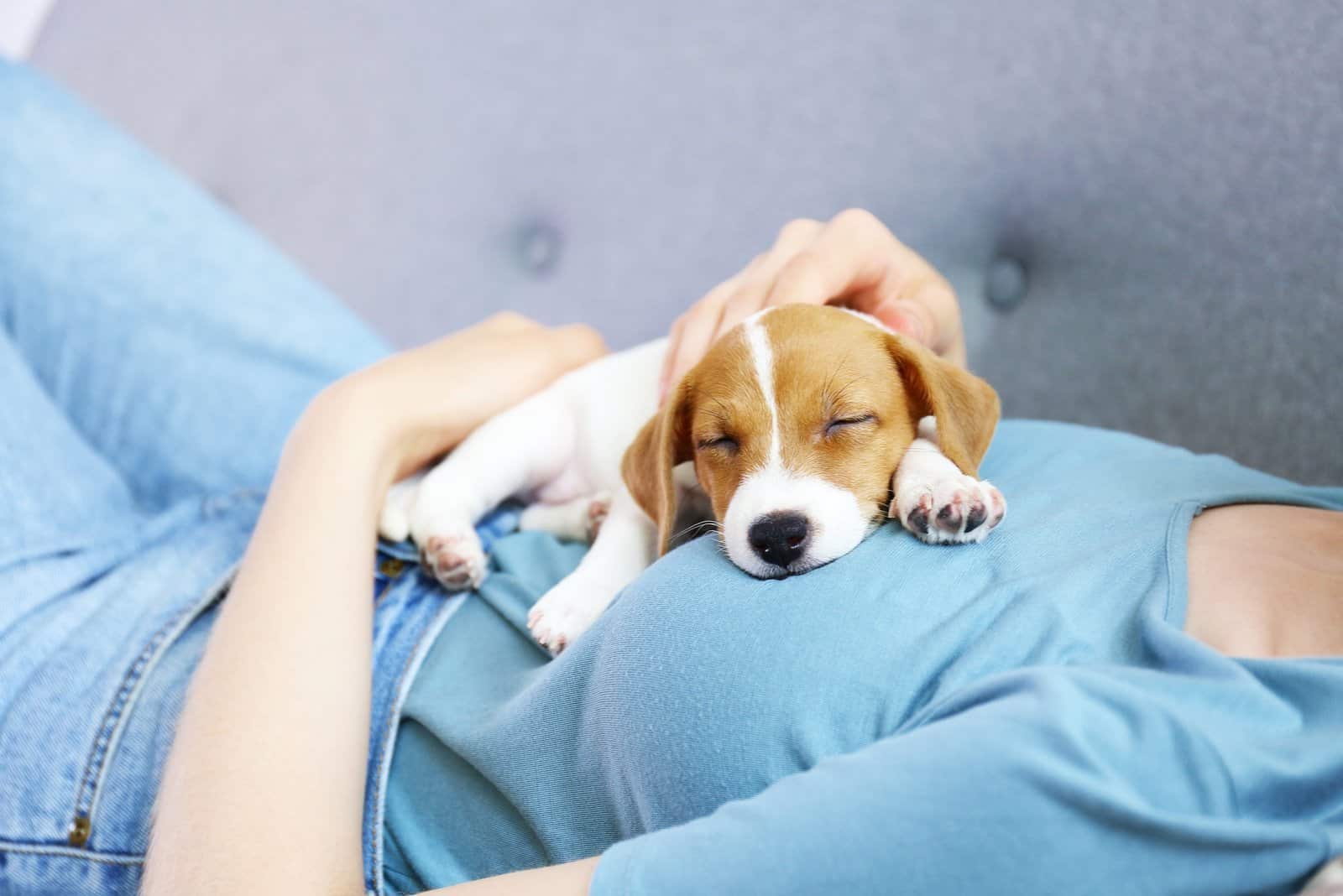
Some people think that having a dog lay his head on your chest is a sign of dominance. However, this is rarely the case. Quite the opposite – if a dog lays his head on your chest, he is showering you with affection.
By protecting your chest with his body, your dog is letting you know that you are safe, and that he’s there for you. He is protecting you during the night time, so you can sleep soundly.
At the same time, your chest is a comfortable place for a dog. Not only is it warm, but your dog can hear your heartbeat, which can calm him down.
Why Does My Dog Sit On My Head When I Sleep?
Okay, you’ve learned why a dog sleeps on your head. But, why is he sitting on it?
Most of the time, this is because he doesn’t want you to leave. By sitting on your head, they’re not allowing you to get up, so in their minds, they are doing all they can to make you stay with them.
This is common for dogs with separation anxiety that are having a hard time dealing with their owner leaving for work.
Why Does My Dog Sleep With His Head Hanging Off The Bed
Most dogs tend to sleep with their head hanging off the bed. While this is a common sleeping position, the reasons behind it are somewhat complex.
First off, this position can help them get pressure relief from the spine. This is similar to stretching, as they are keeping their vertebrae relaxed.
Having their head dangling off the side of the bed also means your dog is relaxed and unconcerned, as this is a position in which he isn’t able to suddenly jump in the case of danger.
On the other hand, this position gives him the opportunity to keep an eye on things around him. When he opens his eyes, he can see precisely what is going on without having to move.
How Do You Stop Your Dog From Sleeping On Your Head?
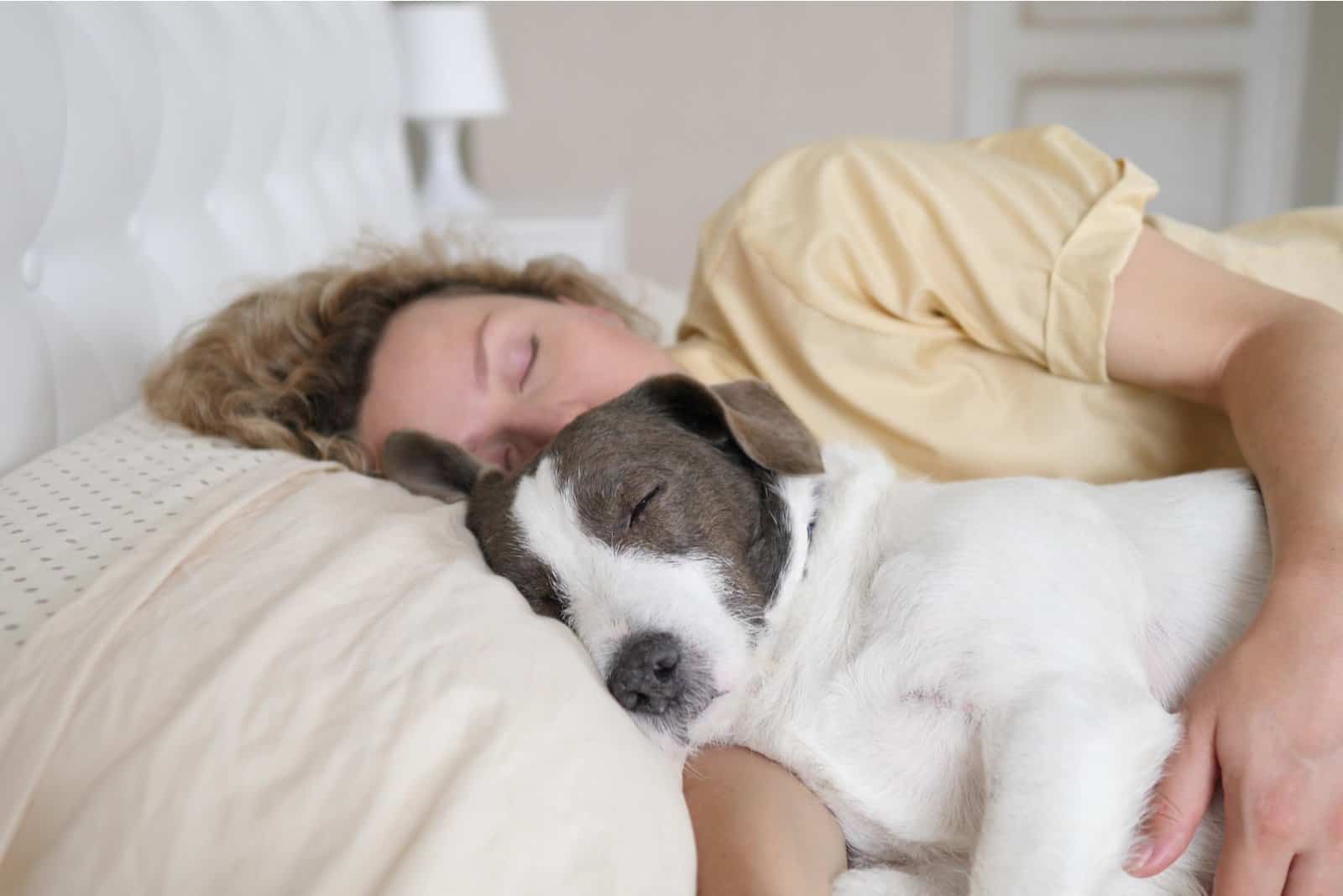
Now that you know the answer to the question Why does my dog sleep on my head?, it’s time to start thinking about what you can do to stop him from continuing this behavior.
While having a dog sleep on top of you sounds like fun, it can become quite annoying over time. Not just that, but he might end up giving you some health problems, especially if your dog sleeps over your nose. This can lead to dog allergies, asthma attacks, and other respiratory issues in pet owners.
At the same time, if you have a large dog that loves to snooze on your head, you might get hurt by accident.
To stop these behaviors, first, you must understand why your dog is acting in such a way.
Here are a few things you need to consider:
1. When Did Your Dog Start Sleeping On Your Head?
When was the first time you thought to yourself: Why does my dog sleep on my head? Did something happen to make him behave in such a way? Try to think about this.
Did your dog get scared by a firecracker on the street, so now all fireworks are causing him to go into panic mode? This might be why he is suddenly so eager to sleep as close to you as possible, including on your head.
Maybe one of your family members started allowing him to join them in bed, so now they think that they can sleep with whoever they wish. Who knows, maybe even you did something to make them think that jumping on the bed is the right thing to do.
Also, look at the dog’s bed and see what condition it is in. Maybe it has gotten dirty, or the dog moved it so he can no longer hop into it to sleep. Maybe you’ve moved a new lamp close to it, or you’ve started turning the AC on, so now the surrounding environment is no longer pleasant.
2. Does He Sleep More Often Sometimes?
Does your dog sleep on your head more often in winter? Chances are he is cold, and he is trying to catch some of your body heat. This is the same reason why a dog might be trying to sleep under the blankets or between your legs.
If a dog is sleeping on your head in the morning, chances are he is sad that you’re about to leave for work or he has separation anxiety. By sleeping on your head, he’s trying to prevent you from getting up and leaving.
3. Does He Sleep In Particular Sleeping Positions?
Finally, you should look at your dog’s sleeping positions, as they can tell you a lot about how your pooch is feeling at the said moment.
Here are some of the most common sleeping positions:
• Curled: If a dog sleeps by curling himself into a ball with his nose touching his tail, he is likely feeling shy or insecure. This is usually because he has found himself in a new sleeping environment, so he is instinctively trying to protect his vital organs.
This is also a common position for preserving body heat, so your dog might be feeling cold.
• On the back: If your dog sleeps on his back, keeping his belly exposed with his paws in the air, this is a sign he trusts you and that he is feeling safe.
• On the side: This is another fairly vulnerable position, and another sign that your dog fully trusts you.
• On the belly: If a dog sleeps on his belly with his front and back paws stretched, your dog likely isn’t in a deep sleep. He is simply having a quick, relaxing nap.
Now that you know all the factors that might help you understand why your dog is sleeping in such a way, it’s time to learn how to tackle the issue.
Make Sure The Dog Is Stimulated
Your dog has to have plenty of exercise to keep himself stimulated. Mental stimulation is essential for your dog’s well-being, while physical exercise is essential to make your dog tired.
Overall, any outdoor activity is great as long as it gets your dog tired. Whether that’s walking, swimming, or playtime, your pup needs to get rid of any excess energy he has.
If you have to go to work, you should make sure that you leave your dog with enough toys while he is home alone. If a dog is bored, he’ll be more active when you come home, which will result in destructive or clingy behavior when it’s bedtime.
You might want to leave the television, radio, or lights on as this might keep your dog from feeling lonely. You might even hire a professional dog walker who will give your pup plenty of playtime while you are away.
Train Your Dog
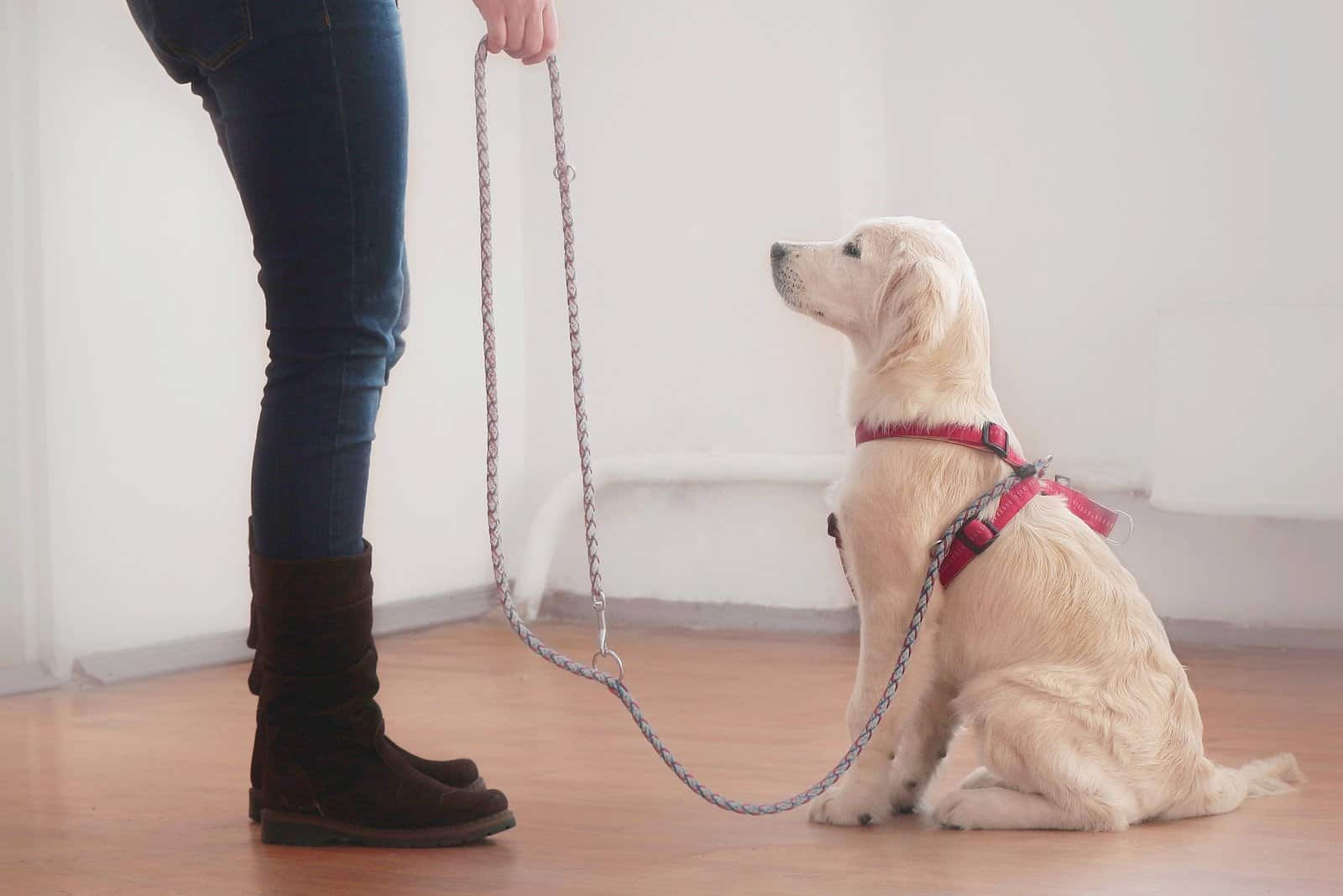
Dog training is very important in every aspect of life with dogs. If you’ve trained your dog, you can also get him to stop climbing on your bed. Even if your dog isn’t necessarily trained, there are ways to teach him out of that behavior.
Start by taking the dog to the place you’d like him to sleep, and tell him a command he knows, such as ‘Sleep!’, or ‘Stay!’. Walk away, and see whether they’ll listen to you and stay sleeping where you told them to.
If your pup listened to you, reward him with a treat. If he didn’t, take him back to his bed until he obeys. Keep on doing this until he stays where you want him to.
Keep in mind that every time you allow your dog to sleep on your bed, you’re letting your dog know that he’ll be able to get what he wants if he’s persistent enough.
Get Him A Good Dog Bed
At the same time, make sure you give your dog a pleasant sleeping environment. Your dog needs to love his sleeping area, as this will make the training much easier and more pleasant. The first thing you need to do is buy him his own bed.
You can get many great products both in stores, and also from sites such as Amazon. The Best dog beds are usually orthopedic, and made out of memory foam.
In fact, many times when dog owners wonder Why does my dog love my bed more than his own?, the answer is simple: Our beds are more comfortable than the dog’s sleeping spot. This is why they’ll choose to infiltrate our beds instead.
The dog’s bed shouldn’t be in a bright spot, especially not during the nighttime. While keeping your dog active during the day is a good thing, now it’s essential to remove any distraction and allow him to have quality sleep without any disturbance.
Give Him Plenty Of Emotional Support
Some dogs will sleep on your head because they want to be closer to you. If you give your four-legged best friend enough support throughout the day, he might feel more comfortable sleeping alone at night.
Sometimes, every dog feels a bit mischievous or clingy if he is feeling like he isn’t getting enough emotions from his owner. This dog behavior can stem from his desire to feel close to you, or to get the amount of love he needs.
If a dog fills his need for staying close to you throughout the day, there are fewer chances that he’ll need the same during the night. By giving him enough attention, he’ll no longer ask for more.
Dog Training Is The Key
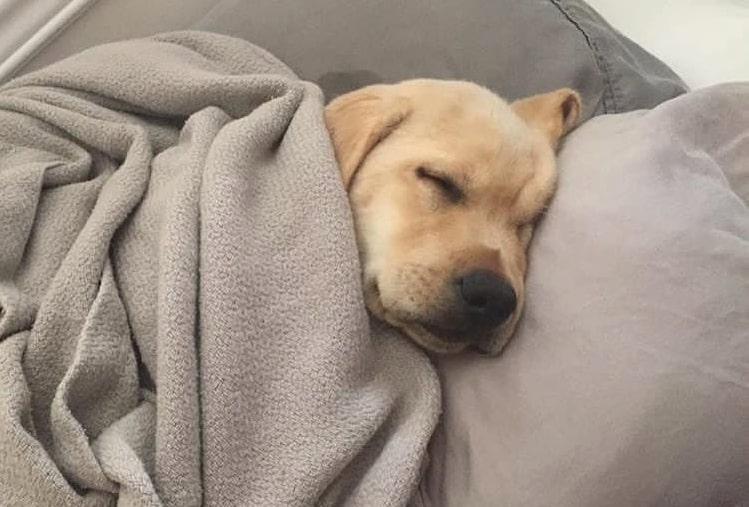
Photo from: @sleepingdogs
While we might feel bad about teaching our dogs to obey us, the truth is that every dog likes having a strong pack leader. Their instincts tell them that they have to follow someone, and they’ll be very loyal to strict dog owners who know how to balance affection and rules.
The next time, don’t just wonder Why does my dog sleep on my bed? Instead, try doing all you can to teach him out of this behavior. This can help both of you get a good night’s sleep.
While having a dog share a bed with you sounds cute, things can get out of hand if the dog starts climbing on your face all the time. You need to teach your dog that there are certain limitations.
Don’t be sad if your dog has to sleep in his own bed. This is better for both of you. Make up for it by providing him with lots of hugs and cuddles during the day. This is the best way to strengthen your bond.
Related Article: Why Do Dogs Sleep With Their Bum Facing You

